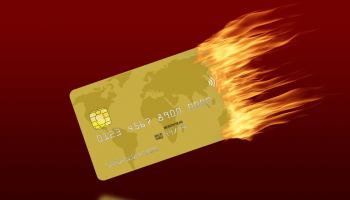CFPB Finalizes Rule to Cut Late Credit Card Fees
Average late fee charge reduced from $32 to $8
- |
- Written by Banking Exchange staff

The Consumer Financial Protection Bureau (CFPB) has introduced a final rule to reduce the typical credit card late fee from $32 to $8.
The CFPB estimates the new fee rule will result in average savings of $220 per year for the more than 45 million people who are charged late fees, therefore saving American families more than $10 billion.
The final rule also prevents banks from implementing automatic annual inflation adjustments, instead the CFPB will monitor market conditions and adjust the late fee immunity as necessary.
This amendment was introduced as the regulator found that many banks increased their late fees each year without evidence of increased costs, taking advantage of a loophole in the regulation implementing the CARD Act.
Credit card issuers will now only be able to charge fees above the $8 threshold if they can provide proof that the higher fee is necessary to cover their actual collection costs.
Rohit Chopra, director of CFPB, said: “Today's rule ends the era of big credit card companies hiding behind the excuse of inflation when they hike fees on borrowers and boost their own bottom lines.”
The final rules applies to credit card issuers with more than 1 million open accounts, as CFPB data shows these companies account for more than 95% of total outstanding credit card balances and are more likely to charge close to the maximum allowable late fee amount.
Whereas, smaller credit card issuers tend to charge lower rates and fees to their borrowers.
Tagged under Retail Banking, Feature, Fee Income, Feature3, Consumer Credit, Customers, Cards,













